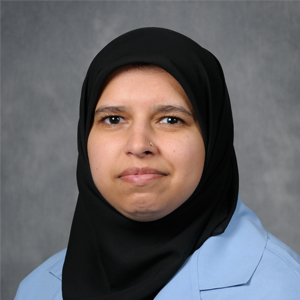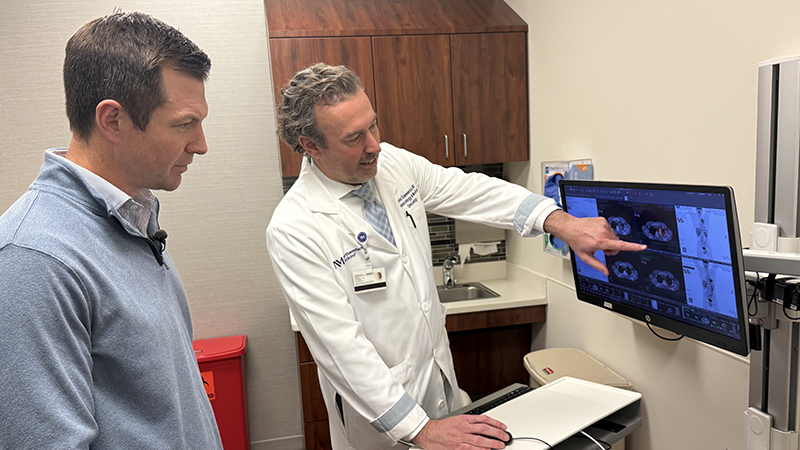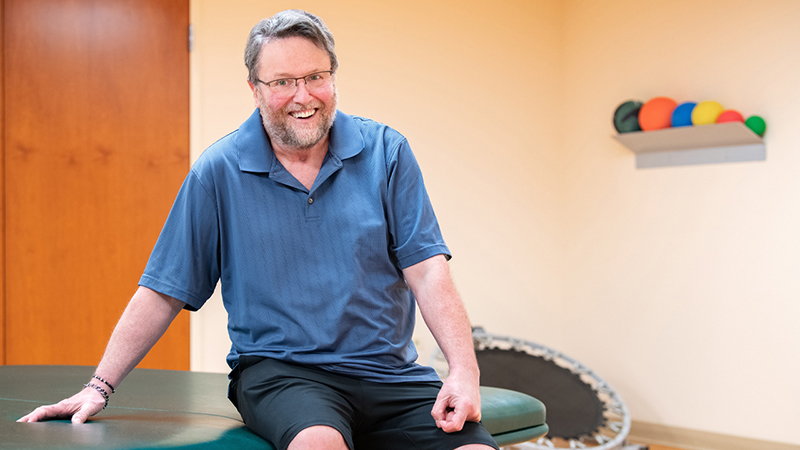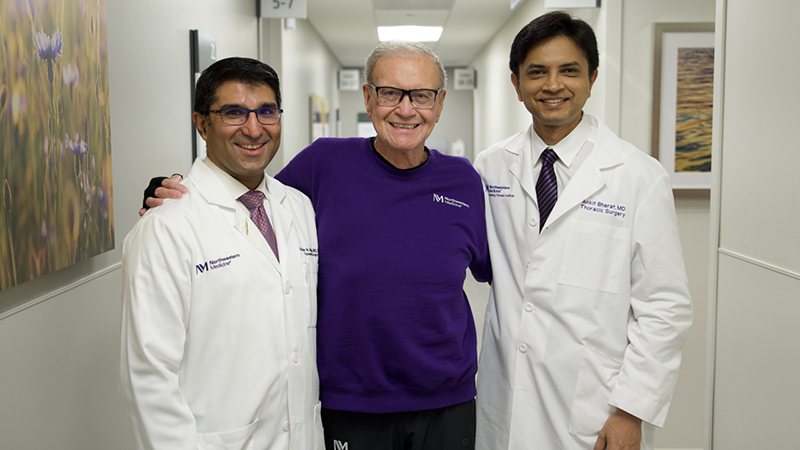When the Physician Becomes the Patient
Published September 2021
How a Stroke Helped Her Provide Better Care
Shaiba Z. Ansari-Ali, MD, survived a basilar artery stroke, a rare and very serious type of stroke, in 2016. Before the day that changed her life, Dr. Ansari-Ali was seeing about 75 patients a week as a Northwestern Medicine Regional Medical Group rheumatologist and was actively involved in medical education. She also had a busy family life, with two children at home.
For years, Dr. Ansari-Ali had experienced increasingly intense migraines and persistent coughing from asthma. In the week leading up to her stroke, she felt deep neck and spine pain after an episode of severe coughing. Then one morning, while finishing clinic notes at home, the room started to spin.
She was having a stroke.
Everything happens for a reason, even if you may not like it.— Shaiba Z. Ansari-Ali, MD
Her constant coughing had tattered the lining of the two major blood vessels that go to the brain along the back of the neck. A clot formed and traveled into the major blood supply to the brain. Her neurologist suspected an internal capsule stroke. After making sure it was not a cerebral hemorrhage, the neurologist ordered a dose of tissue plasminogen activator (tPA) to dissolve the clot.
After a few days, Dr. Ansari-Ali was discharged to Northwestern Medicine Marianjoy Rehabilitation Hospital. There, due to a rare complication, she experienced hemorrhaging that nearly stopped her heart twice. She was transferred to Northwestern Medicine Central DuPage Hospital, where she underwent surgery for yet another setback, an infected groin hematoma. After a successful surgery, she was transferred back to Marianjoy, where her rehabilitation began again.
For three weeks, Dr. Ansari-Ali had days when she struggled both physically and emotionally, but her determination and progress led her home. She continued practicing what she learned in rehabilitation and even created her own speech exercises. Incredibly, she has returned to clinical practice and wrote a book about the experience. In When the Doctor Has a Stroke (How I Recovered and You Can Too), she shares her personal account and humorous insights as a healthcare provider who became a patient and describes what she learned during a functional and meaningful recovery.
In the Q&A that follows, Dr. Ansari-Ali shares what life is like for her today.
Tell us what perspective you may have gained by switching from the role of physician to patient and how that has shaped your practice.
I take time to explain more to patients, and I always try to end the visit on a positive note. That's something I kept with me from my time recovering at Marianjoy. The rehab team was very upbeat and encouraging, and I believe it helped my recovery. I want to be able to do the same for my patients. I want them to go home with a good feeling.
After your experience, writing a book is an incredible accomplishment. What inspired you to write the book, and what does it mean to you?
I felt like the universe came together and saved me, and I had to give something back. I knew I wanted to write a book, but I didn't want it to be long and overly serious. My inspiration was actually TED Talks. I wrote one line a day for six months during the pandemic. The book itself is geared toward patients and caregivers, as well as medical trainees, because I want them to know how important it is to have this perspective.
What do you want other physicians to know when they read your story?
Enjoy what you do. I am very thankful I can say that it is true for me. Moreover, everything happens for a reason, even if you may not like it. The number of patients I am able to see in a day was cut in half. Effects that slowed me down because of the stroke actually made me a better physician. Now I am able to spend more time with my patients, which gives me new appreciation.
What advice would you share with someone who is recovering from a stroke?
Be in the moment to heal, but look ahead to a year from now or two years from now, and things will be better. For me, it was a horrible dream in 2016, but since then it has been improving. Take time to focus on healing and getting back to your life.






